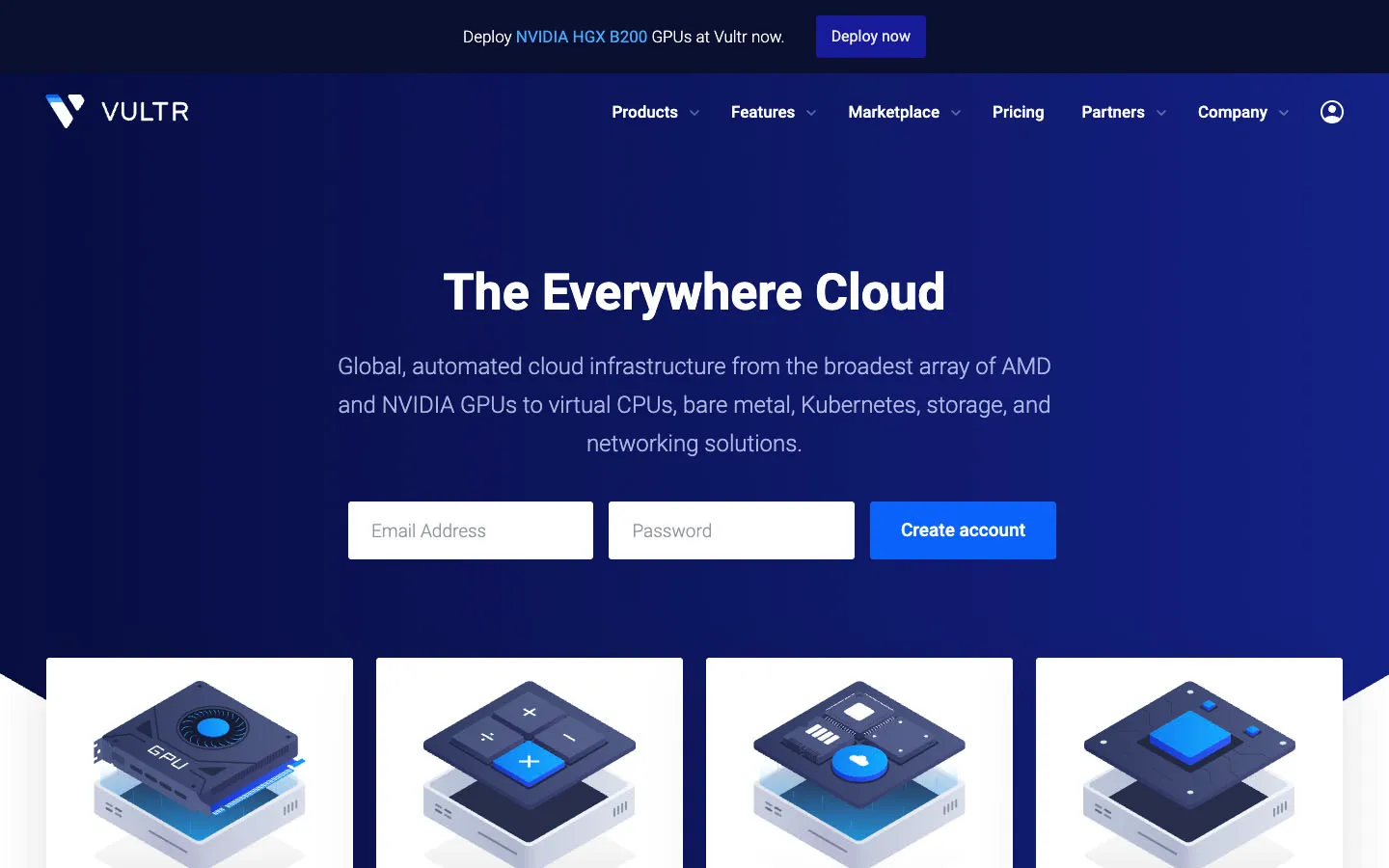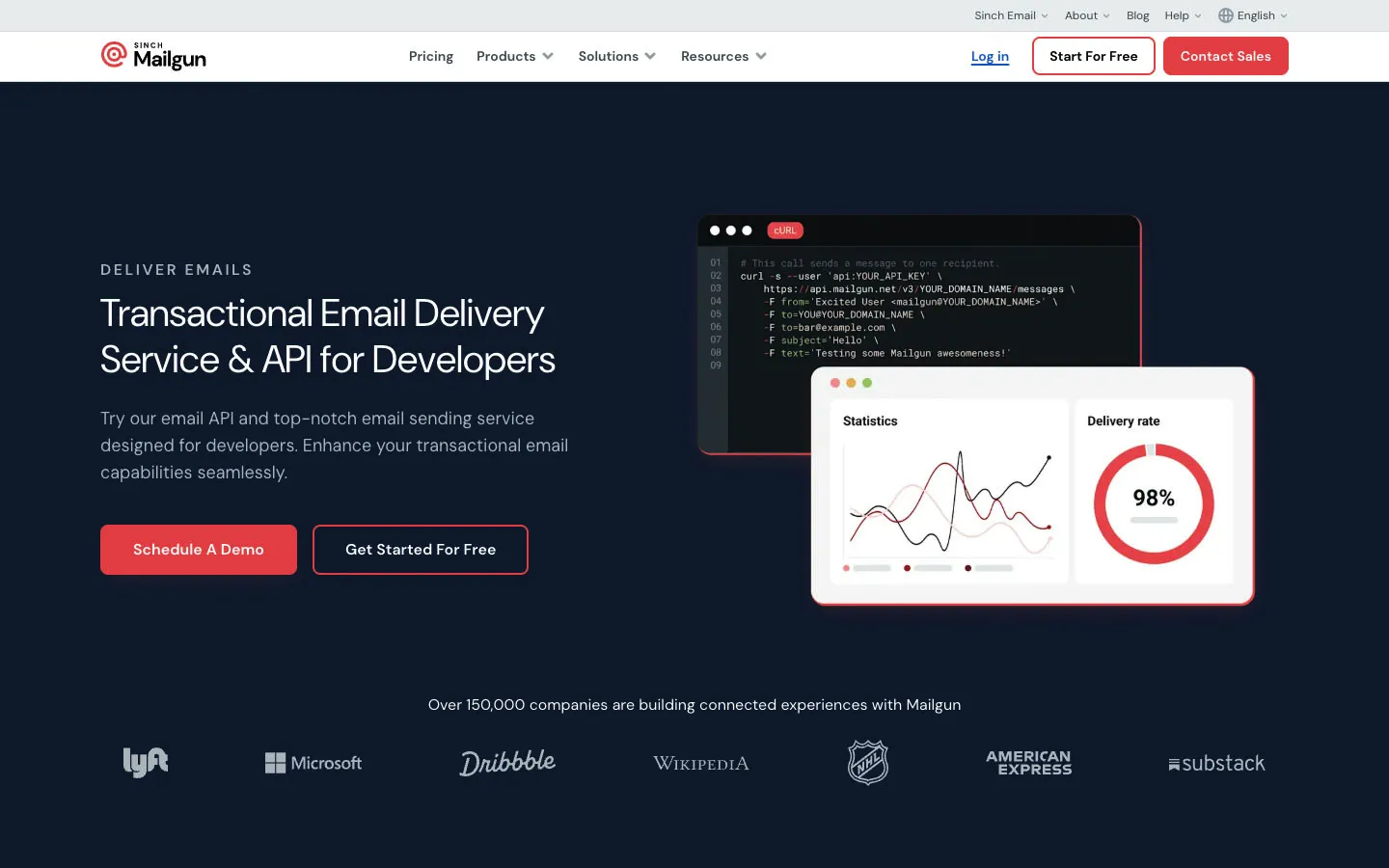Now Reading: Vultr Review: A Deep Dive into a Flexible and Developer-Friendly Cloud Hosting Provider
-
01
Vultr Review: A Deep Dive into a Flexible and Developer-Friendly Cloud Hosting Provider
Vultr Review: A Deep Dive into a Flexible and Developer-Friendly Cloud Hosting Provider

Vultr.com is a high-performance cloud hosting platform known for its developer-first approach, competitive pricing, and wide range of infrastructure products. Whether you’re building a web app, deploying a game server, or managing a global SaaS platform, Vultr provides flexible and scalable solutions tailored for both individual developers and growing businesses. In this SEO-optimized review, we’ll take a detailed look at Vultr’s features, pricing, performance, and where it stands among the leading cloud providers.
Overview of Vultr
Founded in 2014, Vultr was created with a simple mission: to make high-performance cloud computing easy to access and use. Since then, it has grown into a trusted cloud hosting provider with over 32 data center locations worldwide. Unlike traditional enterprise platforms, Vultr offers simplicity and transparency, making it ideal for startups, freelance developers, and businesses seeking reliable infrastructure without the complexity of AWS or Google Cloud.
What makes Vultr stand out is its developer-friendly environment combined with enterprise-grade reliability. The platform supports everything from basic VPS deployments to advanced Kubernetes clusters, giving users complete control over their cloud environment. Vultr’s infrastructure is built on SSD storage, high-frequency CPUs, and global networks that ensure fast load times and low-latency performance.
Key Strengths
Vultr has carved out a strong position in the cloud hosting market by focusing on several core advantages:
- Affordable, Predictable Pricing: Vultr offers transparent billing with both hourly and monthly pricing, making it easy to manage your budget and scale as needed.
- Global Infrastructure: With more than 30 strategically located data centers, you can deploy resources closer to your users for better performance.
- Customizability: Choose from standard compute, optimized compute, bare metal, or managed Kubernetes to match your exact needs.
- Ease of Use: Vultr’s clean dashboard and powerful API let you launch and manage servers in just a few clicks or automate everything.
These strengths make Vultr particularly appealing to developers who value control, cost-efficiency, and performance.
Challenges
Despite its strengths, Vultr does come with a few limitations:
- Limited Customer Support: Support is provided through a ticket-based system only. There is no live chat or phone support, which can be a drawback for time-sensitive issues.
- No Built-In Auto-Scaling: While you can scale manually, Vultr lacks native auto-scaling features available in platforms like AWS.
- Learning Curve for Beginners: Although the platform is user-friendly, those unfamiliar with server management may face a learning curve when configuring firewalls, DNS, or security settings.
These challenges aren’t deal-breakers for most users, but they’re worth considering if you’re expecting a managed hosting experience with hands-on support.
Compute Options and Server Types
Vultr offers a wide variety of compute resources to suit different use cases, from personal projects to large-scale business deployments.
- Cloud Compute (VC2): Ideal for general-purpose hosting like websites, apps, and development environments. Plans start as low as $2.50/month.
- High Performance Compute (VDC2): Uses high-frequency CPUs and NVMe storage for demanding workloads. Perfect for databases, APIs, and real-time apps.
- Bare Metal Servers: Dedicated physical servers with full root access. Ideal for resource-intensive applications that require maximum performance.
- Optimized Cloud Compute: Offers better I/O performance and faster CPUs than standard compute. Ideal for high-load applications.
- Managed Kubernetes: Automatically deploy and manage containerized applications at scale with Vultr’s easy-to-use Kubernetes solution.
Each option is available in multiple configurations, allowing you to fine-tune your server based on CPU, memory, and storage requirements.
Global Data Center Coverage
Vultr’s global presence is one of its key selling points. With over 32 data centers in cities like New York, London, Tokyo, Frankfurt, Sydney, and São Paulo, Vultr makes it easy to bring your infrastructure closer to your target audience.
This global distribution ensures:
- Lower latency for users.
- Improved SEO performance due to faster site loading.
- Easier compliance with regional data laws.
Whether you’re running a content-heavy website or deploying a multiplayer game, Vultr’s geographic flexibility is a huge plus.
Developer-Focused Features
Vultr is built for developers, and it shows in the features:
- One-Click App Marketplace: Instantly deploy WordPress, Docker, LAMP, and more without touching the command line.
- Custom ISO Uploads: Install your own operating system and retain full control over your environment.
- Powerful API: Automate every part of your workflow, from deploying new instances to managing snapshots and backups.
- SSH Key Management: Easily add SSH keys for secure, password-free login to your instances.
These features help speed up development cycles and reduce the manual overhead often associated with server administration.
Performance and Uptime
Performance is a core part of Vultr’s value proposition. All instances are backed by:
- 100% SSD storage
- High-performance Intel and AMD CPUs
- Redundant network infrastructure
Vultr guarantees 99.99% uptime for most services, and real-world benchmarks show that the platform holds up well under load. High-frequency compute plans, in particular, are known for their blazing speed and responsiveness.
Whether you’re running a blog, e-commerce site, or a SaaS platform, Vultr’s infrastructure provides the performance and reliability needed to deliver a seamless user experience.
Pricing and Billing
One of Vultr’s biggest draws is its transparent and flexible pricing model. You can choose between hourly or monthly billing, depending on your needs.
Sample Pricing:
- Cloud Compute: From $2.50/month (512 MB RAM, 10 GB SSD, 1 vCPU)
- High Frequency Compute: From $6/month
- Optimized Cloud Compute: Starting around $28/month
- Bare Metal: From $120/month
Add-ons such as automated backups, snapshots, and DDoS protection are billed separately, giving you the option to customize your infrastructure to your exact needs.
This pay-as-you-go model is ideal for:
- Developers testing new applications
- Startups needing to scale incrementally
- Agencies managing multiple client projects
Customer Support and Documentation
While Vultr doesn’t offer live chat or phone support, it compensates with an extensive knowledge base and responsive ticket system. Most common issues are well-documented, and community forums provide additional help.
Vultr also maintains a robust developer documentation section that includes API guides, tutorials, and example use cases. For experienced users, this can be more than enough. However, less technical users may wish for more personalized support options.
Comparison with Competitors
Vultr vs. DigitalOcean
- Similar UI and product offerings.
- Vultr’s high-frequency compute often outperforms DigitalOcean’s standard droplets.
- More global locations give Vultr an edge in speed and latency.
Vultr vs. AWS
- AWS offers more enterprise-level tools, but Vultr is easier to use and significantly cheaper.
- Vultr provides better pricing predictability.
Vultr vs. Linode
- Linode offers excellent support, but Vultr’s performance per dollar is often better.
- Vultr has more aggressive global expansion.
Pros and Cons
Pros
- Highly competitive pricing with granular billing options
- Fast deployment and easy scalability
- Wide selection of compute instances
- Developer-first tools like custom ISOs and robust APIs
- Global infrastructure for faster site performance
Cons
- No real-time support options like chat or phone
- Limited managed services compared to AWS or GCP
- Some advanced users may miss auto-scaling and load balancer features
Ideal Use Cases
Vultr is perfect for:
- Developers: Build and test applications in a fast, customizable environment.
- Startups: Get enterprise-level performance without blowing your budget.
- Agencies: Manage client websites and apps with ease.
- SaaS Providers: Deploy apps globally with low-latency infrastructure.
- Gamers and Streamers: Host game servers or streaming relays with consistent performance.
Final Verdict: Is Vultr Worth It?
Vultr is one of the most accessible and affordable cloud hosting providers on the market. Its global reach, developer-friendly features, and flexible pricing make it ideal for a wide range of use cases. While it lacks some of the advanced features and support options of the big players, it delivers exceptional value where it counts: performance, simplicity, and control.
Final Verdict: Vultr is a top choice for developers, startups, and small businesses looking for cloud infrastructure that balances power and affordability. If you’re ready to leave behind bloated dashboards and unpredictable bills, Vultr is absolutely worth a look.
Vultr FAQ: Answers to Your Common Questions
1. What is Vultr used for?
Vultr is a cloud hosting provider used to deploy virtual private servers (VPS), bare metal servers, and managed Kubernetes clusters. It’s ideal for hosting websites, web apps, databases, game servers, and other cloud-native applications.
2. How much does Vultr cost?
Vultr offers pay-as-you-go pricing starting at $2.50/month for basic Cloud Compute instances. More powerful plans like High Frequency Compute and Bare Metal are available, with pricing based on your selected resources (CPU, RAM, storage, etc.).
3. Does Vultr offer free trials or credits?
Yes, Vultr occasionally offers promotional credits for new users. These can typically be redeemed during sign-up or through referral links. However, a valid payment method is usually required to activate your account.
4. Is Vultr good for beginners?
Vultr is beginner-friendly compared to platforms like AWS, but some technical knowledge (DNS, SSH, server setup) is helpful. The platform provides clear documentation and one-click app installations to ease the learning curve.
5. What operating systems are supported?
Vultr supports a wide range of OS options including Ubuntu, Debian, CentOS, Rocky Linux, AlmaLinux, Windows, and custom ISO uploads for any other system you want to install manually.
6. Can I host a website on Vultr?
Absolutely. You can host anything from static sites to complex WordPress blogs or e-commerce platforms using Vultr’s Cloud Compute or Optimized Compute plans. One-click WordPress deployment is available.
7. How reliable is Vultr?
Vultr offers a 99.99% uptime SLA and performs well in real-world benchmarks. High-frequency compute plans in particular offer excellent speed and low latency, supported by SSD/NVMe storage and premium networking.
8. Where are Vultr’s data centers located?
Vultr has 32+ data centers globally, including locations in the US, Canada, UK, Germany, Japan, Australia, Singapore, and Brazil. This allows you to deploy servers near your target audience for better performance.
9. Is Vultr secure?
Yes. Vultr offers built-in firewalls, optional DDoS protection, private networking, and supports strong SSH access and password policies. For sensitive workloads, you can enhance security through custom configurations.
10. Does Vultr offer customer support?
Vultr provides ticket-based support only—there’s no live chat or phone support at this time. However, its knowledge base and community forums are comprehensive, and response times are generally fast.
Vultr Review 2025
The Summary
Vultr.com is a powerful, developer-focused cloud hosting provider offering flexible, affordable infrastructure with global reach. Established in 2014, it has grown into a reliable alternative to giants like AWS and DigitalOcean, particularly appealing to startups, developers, and small businesses.






